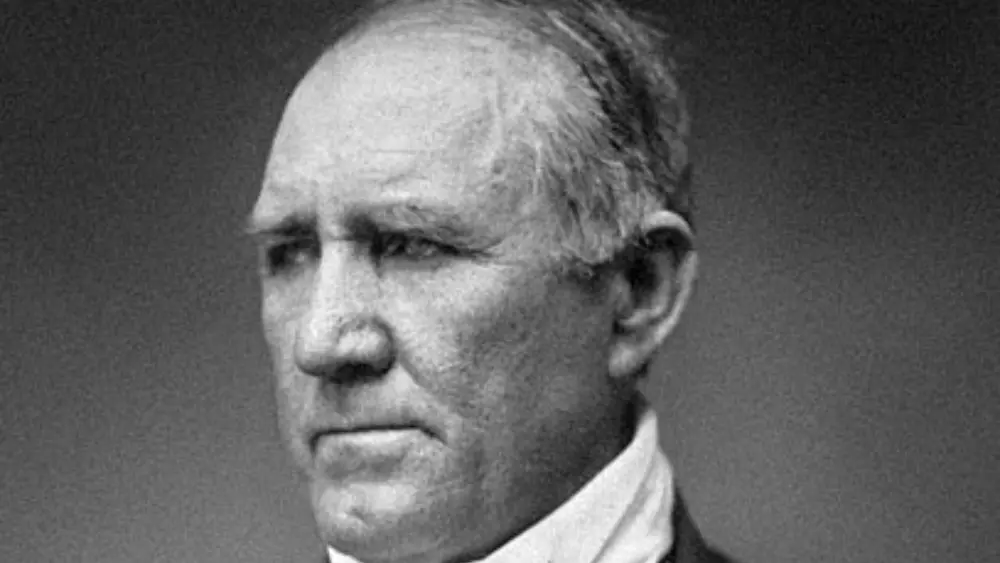Sam Houston, born on March 2, 1793, in Rockbridge County, Virginia, emerged as a towering figure in the history of Texas and the United States. Renowned for his military leadership, statesmanship, and pivotal role in the Texas Revolution, Houston’s life is a testament to resilience, adaptability, and a commitment to the ideals of freedom and self-determination.
Early Life and Military Service
Sam Houston’s early life was shaped by adversity and a thirst for knowledge in the rural landscape of Tennessee. Born in 1793, Houston’s journey into the military realm commenced at the age of 19 when he enlisted in the U.S. Army. His decision to join the military marked the beginning of a remarkable career that would unfold against the backdrop of significant historical events.
Houston’s military prowess became apparent during the War of 1812, where he showcased both leadership skills and tactical acumen. His swift ascent through the ranks foreshadowed the future successes that would come to define his military and political legacy. The early years of military service laid the foundation for Houston’s storied career, setting the stage for his later achievements as a statesman and leader in the Republic of Texas.
Sam Houston: Cherokee Diplomat and Political Beginnings
After his military service, Sam Houston’s life underwent a notable transformation as he immersed himself in the Cherokee Nation. Living among the Cherokee people, Houston became a diplomat and an advocate for Native American rights. This unexpected chapter in his life demonstrated Houston’s versatility and ability to navigate diverse cultural and political landscapes. His time among the Cherokee not only deepened his understanding of indigenous issues but also served as a crucial period of personal and political development.
Houston’s experience as a diplomat with the Cherokee Nation marked the beginning of his transition into the realm of politics. This phase in his life set the stage for his subsequent political endeavors, showcasing his ability to bridge cultural gaps and negotiate complex issues. Houston’s early foray into diplomacy with the Cherokee laid a foundation for the dynamic political career that would unfold, ultimately shaping the history of Texas and the broader United States.
Governor of Tennessee: Political Rise and Fall
Sam Houston’s political ascent reached a pinnacle when he was elected as the governor of Tennessee in 1827. As a charismatic and influential leader, Houston enjoyed success in his role, navigating the complex landscape of state politics. However, his promising career took an unexpected turn when a scandalous divorce clouded his personal life. Faced with the fallout from the divorce and increasing political pressure, Houston made the difficult decision to resign from the governorship in 1829.
The abrupt end to Houston’s tenure as governor marked a significant chapter in his life, prompting a period of self-reflection and reassessment. This period of personal and political introspection would prove crucial in shaping Houston’s future trajectory. Despite the challenges, Houston’s resilience and ability to learn from setbacks set the stage for the next phase of his remarkable journey, one that would ultimately lead him to play a pivotal role in the history of Texas.
Sam Houston: Known for in the U.S. Military: Battle of San Jacinto
Sam Houston’s lasting imprint on the United States military is epitomized by his pivotal role in the Battle of San Jacinto. Appointed as the Commander-in-Chief of the Texan forces during the Texas Revolution, Houston displayed strategic brilliance and leadership acumen. The culmination of his military prowess came on April 21, 1836, when Texan forces, under Houston’s command, engaged the Mexican army led by General Santa Anna at the Battle of San Jacinto.
The Battle of San Jacinto proved to be a watershed moment, resulting in a decisive victory for the Texan forces. Houston’s well-executed tactics, including a surprise attack, led to the capture of General Santa Anna and secured Texas’ independence from Mexico. This triumph solidified Houston’s legacy as a military hero and a key figure in the establishment of the Republic of Texas, ultimately paving the way for its annexation into the United States.
President of the Republic of Texas
Sam Houston’s presidency of the Republic of Texas marked a crucial chapter in the young nation’s history. He assumed the role of the first President in 1836, shortly after Texas gained independence from Mexico. During his initial term, Houston focused on stabilizing the newly formed republic, facing numerous challenges such as financial difficulties, diplomatic recognition, and establishing a government infrastructure. His efforts were instrumental in laying the groundwork for Texas as an independent nation.
After a brief hiatus, Houston returned to the presidency for a third term in 1841. During this period, he continued to grapple with issues of national sovereignty and the ongoing efforts to secure international recognition for Texas. His pragmatic approach and diplomatic skills contributed to the Republic of Texas’s resilience in the face of external pressures. Ultimately, Houston’s leadership played a pivotal role in shaping the early trajectory of Texas as an independent nation before its eventual annexation into the United States in 1845.
Sam Houston: U.S. Senator and Governor of Texas
After Texas joined the Union in 1845, Sam Houston transitioned to national politics, representing the state as a U.S. Senator. In the Senate, he advocated for Texas’s interests while grappling with the contentious issue of slavery that was dividing the nation. Houston’s stance on slavery reflected his pragmatic approach; while he was a slaveowner himself, he opposed the extension of slavery into new territories and sought to maintain a delicate balance to prevent further sectional strife.
Houston’s commitment to preserving the Union remained steadfast even as tensions escalated toward the Civil War. Elected as the Governor of Texas in 1859, he faced increasing pressures related to secession. Though he was a Southern states’ rights advocate, Houston was a Unionist at heart. When Texas seceded from the Union in 1861, he refused to pledge allegiance to the Confederacy, resulting in his removal from the governorship. Houston’s principled stand against secession, even at personal and political cost, reflected his unwavering dedication to the Union and his vision of a united nation.
Opposition to Secession: A Stand for Unionism
Amid the intensifying tensions leading to the Civil War, Sam Houston emerged as a steadfast Unionist. While serving as the Governor of Texas, he vehemently opposed the state’s secession from the Union. Houston recognized the divisive and destructive nature of the impending conflict, and adhering to his principles of preserving the United States, he refused to take an oath of allegiance to the Confederacy. This principled stand against secession ultimately led to his removal from the governorship in 1861, as the Southern states gravitated towards forming the Confederacy.
Houston’s refusal to support secession showcased his commitment to the ideals of the Union, even in the face of political and personal consequences. His stance echoed his belief in the importance of maintaining the United States as a single, indivisible nation; however, the prevailing sentiments of the time were pushing towards a fracture that would culminate in the Civil War. Despite this, he remained steadfast in his commitment to preserving the union.

Sam Houston: Legacy and Enduring Influence
Sam Houston’s legacy is deeply woven into the fabric of Texas and American history. As a military leader, he played a pivotal role in the Texas Revolution, leading Texan forces to victory at the Battle of San Jacinto and securing the region’s independence from Mexico. Houston’s service as the President of the Republic of Texas and his subsequent roles as a U.S. Senator and Governor of Texas contributed significantly to the state’s development and integration into the Union.
Beyond his military and political accomplishments, Houston’s commitment to Native American rights and his principled opposition to secession underscored his complex character and enduring influence. His legacy embodies a leader who skillfully navigated a rapidly changing nation, leaving a lasting impact on Texas history and shaping the broader story of American expansion and identity.











